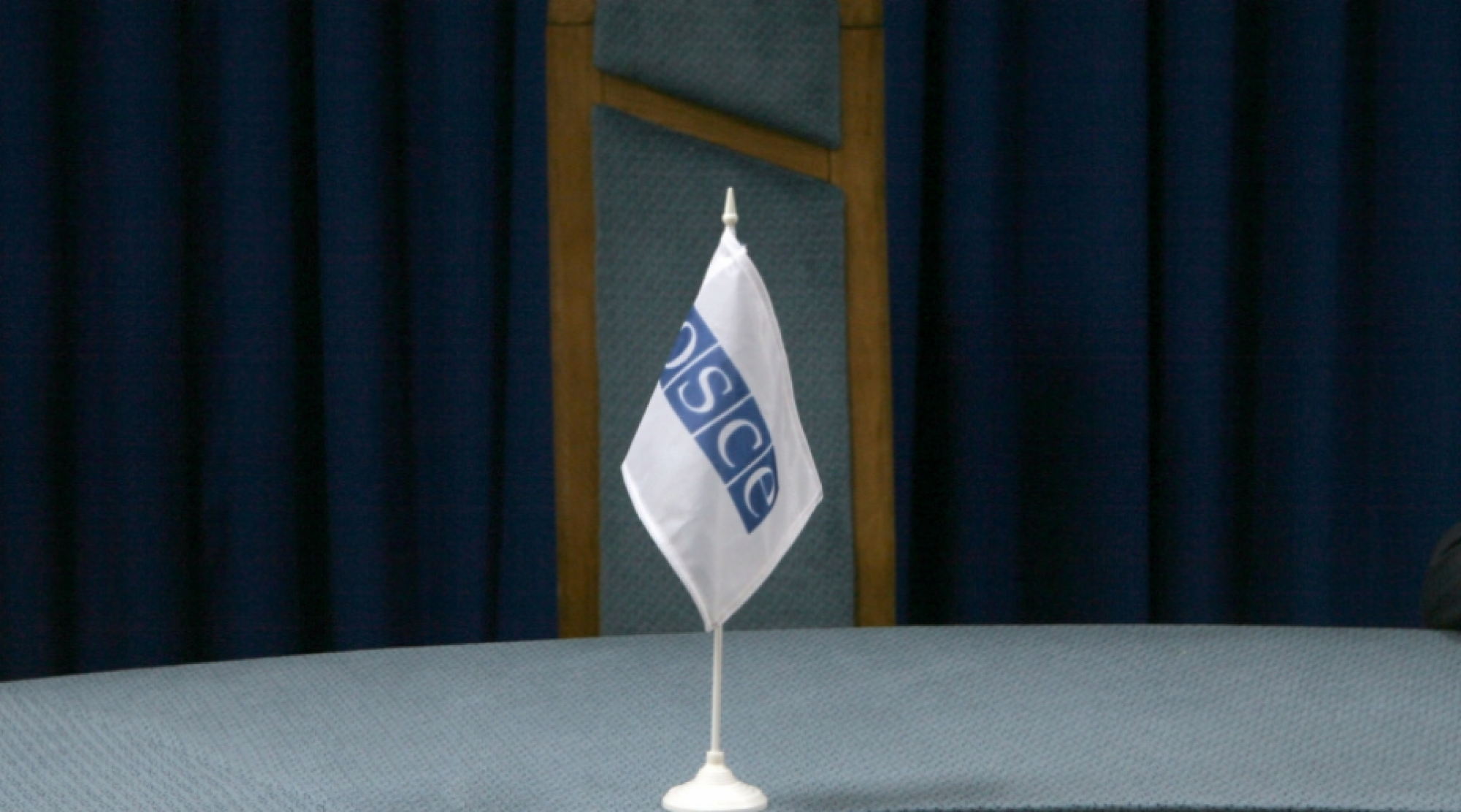Photo: OSCE/Mikhail Evstafiev

Ukraine crisis: International law seriously undermined
It seems that the Russian annexation of the Ukrainian Crimea peninsula in March has plunged the world back into the pre-20th-century system of “might-makes-right” relations. Whatever one may think about the Russian annexation of the Crimea, it is clear that the pillars of our post-Second World War security system have been greatly undermined and consequently the whole system of international law has suffered almost irreparable damage. Russia is not the only great power demonstrating such outright contempt for international law. China with its increasingly aggressive claims of sovereignty over virtually all of the South China Sea and major parts of the East China Sea is demonstrating the same lack of respect for international law and the peaceful settlement of disputes. The recent Chinese harassment of Philippine and Vietnamese navy ships and its flat rejection of an international arbitration procedure, initiated by the Philippine authorities, followed by intimidating behavior against Manila, are worrying examples of the same contempt for international law. Since this is being practiced by two of the five permanent members of the UN Security Council, this is a very worrying development. NATO leaders which are labeling the Russian annexation of the Crimea and its aggression against Ukraine as ‘the most serious security threat in a generation’ have, therefore, good reasons to say so.
It is somewhat paradoxical that just at the time when the most fundamental OSCE values are being violated, the organization is suddenly being revived from its lethargy and apparent loss of a proper role in Eurasian security affairs. Although only recently the main debates in Vienna and OSCE capitals were about which role the OSCE still could play in security affairs and whether or not it was still relevant, the organization (not least through the deployment of a special monitoring mission) is now one of the main actors in trying to help Ukraine overcome one of the most serious crises in its history. The OSCE is now needed more than ever.
At the same time, many fundamental OSCE principles have been violated. These include:
- The fundamental principle of sovereignty and territorial integrity has been seriously violated. Already in the 1975 Helsinki Final Act, all participating states agreed that “they will (…) refrain from any demand for, or act of, seizure and usurpation of part or all of the territory of any participating State” (principle III of the Decalogue of Principles). The dismemberment of Georgia after the Georgian-Russian war in 2008 has been repeated now in Ukraine. Under the unjustified pretext of protecting the rights of Russian speakers in the Crimea, Russia co-organized a scam referendum about independence of the Crimea, leading to its quick integration into the Russian Federation. The Russians apparently didn’t even pay lip-service to the key OSCE principle of ‘peaceful change’ which implies that changes of borders are only allowed by mutual consent of the states concerned (“their frontiers can be changed, in accordance with international law, by peaceful means and by agreement”, as laid down in Principle I of the Helsinki Final Act Decalogue of Principles). Threatening Ukraine with intervention “if our legitimate interests and Russians are directly attacked, like they were in South Ossetia for example” (as stated by Russian Foreign Minister Lavrov on April 23), is a direct violation of key OSCE principles which are the corner stones of modern international law on peace and security. Russia should re-read the High Commissioner’s Bolzano Recommendations on the role of kin-states in protecting national minorities.
- The OSCE regime of the rights of national minorities has been seriously endangered and the Russian policies towards the Crimea have led some observers to drawing parallels between their activities and the Nazi-German occupation of the Sudetenland in 1938. The Crimea is now a drastically changed environment for national minorities, where the Ukrainians overnight became a national minority in a new state, whereas the Tatar community (around 12% of the Crimean population) have also found themselves in a new state against their will. The OSCE High Commissioner on National Minorities will have a lot of new work to do in the foreseeable future.
- The freedom of information and expression, another pillar of the OSCE acquis, has been seriously endangered and the OSCE Representative on Freedom of the Media has been busier than ever to warn against violations of the rights of journalists. As a matter of fact, from both sides of the political divide we can observe incredible levels of propaganda and hate speech, which are dangerously fuelling tensions. The Russian state-controlled mass media are spreading distorted information/propaganda to such an extent that some Baltic countries felt urged to ban all Russian channels from their local networks out of fear of instigating violence within their own large, Russian-speaking communities. At the same time Ukrainian government officials actively participated in spreading hate by posting totally unjustified accusations on their respective facebook pages. Media freedom within the countries most concerned has been highly victimized and attacks on journalists are no longer an exception.
At the same time the enormous economic interdependence in the world has made the threat of “sanctions” by the Western countries mainly a laughingstock (so far), as the consequences of real sanctions for the sanctioning states would likely even be more severe than for the targeted countries. Sanctions as a means to uphold the international legal order, therefore, have largely lost their significance.
There is a real danger that the achievements of many decades, aimed at reducing the risk of war and strengthening an international legal order, are being seriously undermined. The damage may take generations to restore. The current crisis has serious implications well beyond Ukraine.



Comments
* Your email address will not be published